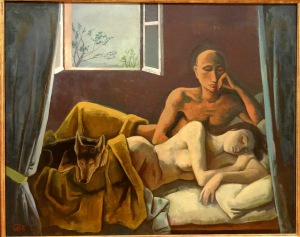I spent the weekend at the medical school at Stanford University, for MedX, a conference focused on the future of patient-centered medical education. Here’s the description of the workshop I led:
What medicine can learn from humanities: Promoting intellectual and emotional engagement, increasing patient-provider connections, and improving medical student and physician wellness.
Here’s the time slot in which I led it: 11:21 AM – 12:06 PM. Apparently precision medicine depends on precision timekeeping.
Whenever the start or stop time, 45 minutes isn’t very long for workshop participants to develop a deep engagement, and yet . . . of the 30+ people in the session, all but one or two volunteered to share their reflections at least once, most more than once. And these were reflections about the BIG HARD THINGS, like intimacy (emotional and physical) and grief.
We began by discussing the difference between “humanism” and “the humanities” (a topic I’ll save for a separate blog entry). Then participants jotted down and shared their observations of Karl Hofer’s oil painting Frühe Stunde (Early Hour).  Then I asked what connections they could make from what we collectively observed about this painting and medical education/the practice of medicine. This gave everyone a chance to reflect on how relationships shape medical care, on what role intimacy plays in healing, on how concepts like foreground/background or light/shadow can serve as metaphors for medicine. Then we moved on to discussing Denise Levertov’s poem Talking to Grief. It was a risk to try to cover two works in such a short session, but I wanted participants to experience how talking about something as different as a painting or a poem could be equally helpful in talking about medicine. We finished by taking time to share thoughts about what impact sessions like this could have for medical students, for practitioners, and for patients and their families.
Then I asked what connections they could make from what we collectively observed about this painting and medical education/the practice of medicine. This gave everyone a chance to reflect on how relationships shape medical care, on what role intimacy plays in healing, on how concepts like foreground/background or light/shadow can serve as metaphors for medicine. Then we moved on to discussing Denise Levertov’s poem Talking to Grief. It was a risk to try to cover two works in such a short session, but I wanted participants to experience how talking about something as different as a painting or a poem could be equally helpful in talking about medicine. We finished by taking time to share thoughts about what impact sessions like this could have for medical students, for practitioners, and for patients and their families.
Two other highlights of the conference for me:
A plenary talk by Erik Brodt, MD about We Are Healers, an organization dedicated to encouraging Native American youth to pursue careers in health care professions. His entire presentation was a reminder of the value of respecting and celebrating different cultures, because he resisted the usual plenary talk format, instead combining story and ritual with a few slides of data points to explain his work and convey its importance.
A breakout session by Loren Pogir and Kate Nitze of the Zen Hospice Project about what support family members need when caring for a loved one who is terminally ill. There are literally millions of Americans in this situation, often with little or no support for an emotionally (and often also physically and financially) challenging time. Despite the “zen” in the title, their organization isn’t religiously based; nevertheless the spiritual importance of what they do was clear from the format as well as the content of the presentation. It was wonderful to learn and reflect with them and my fellow participants.